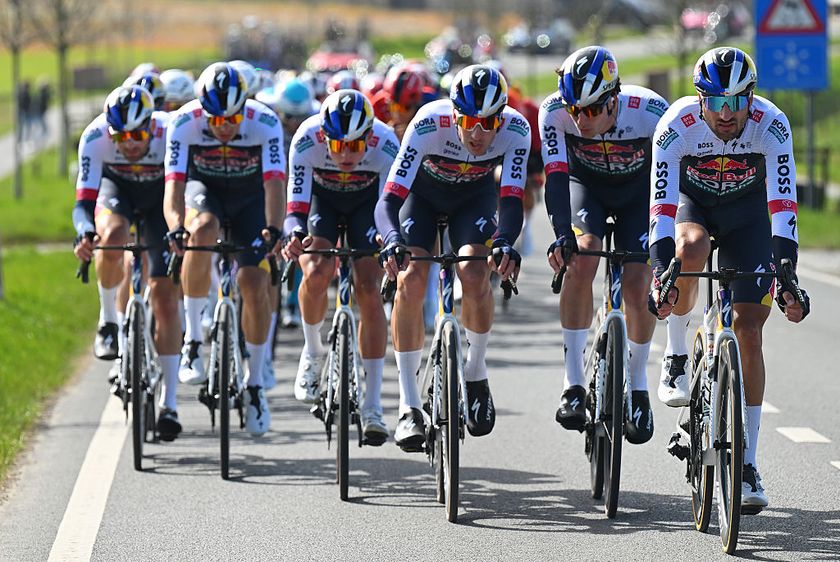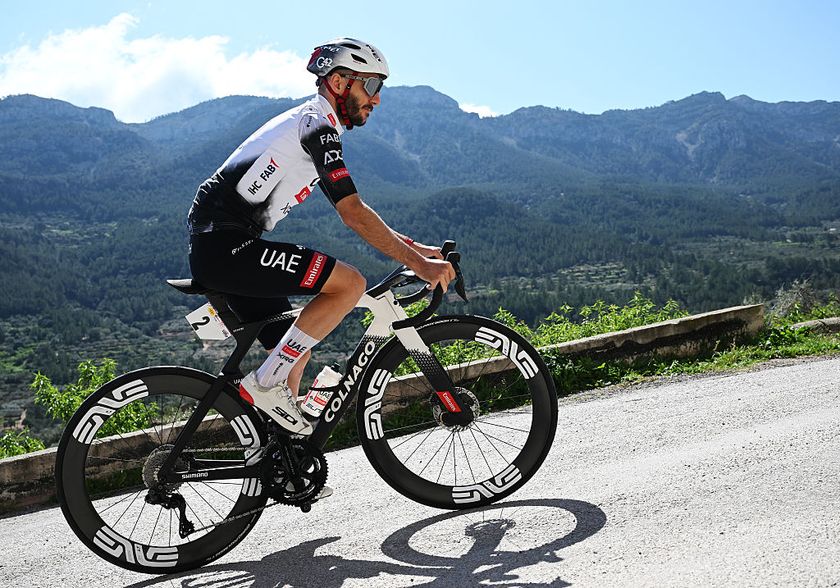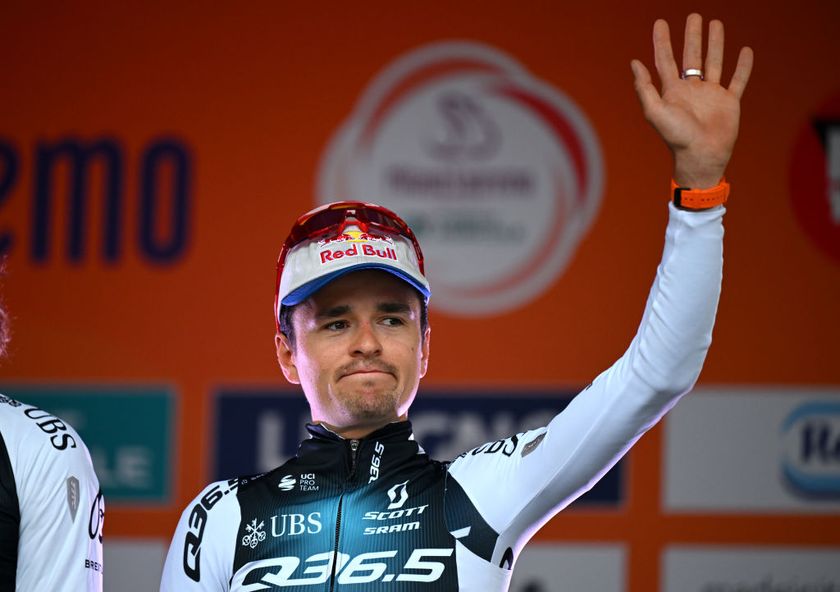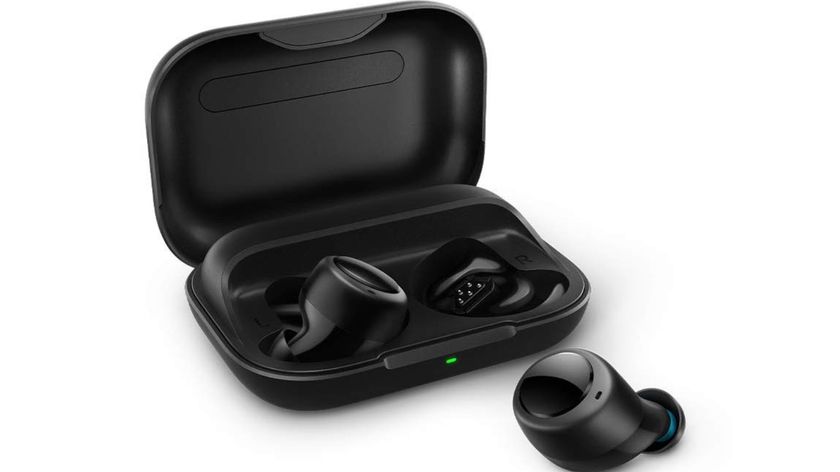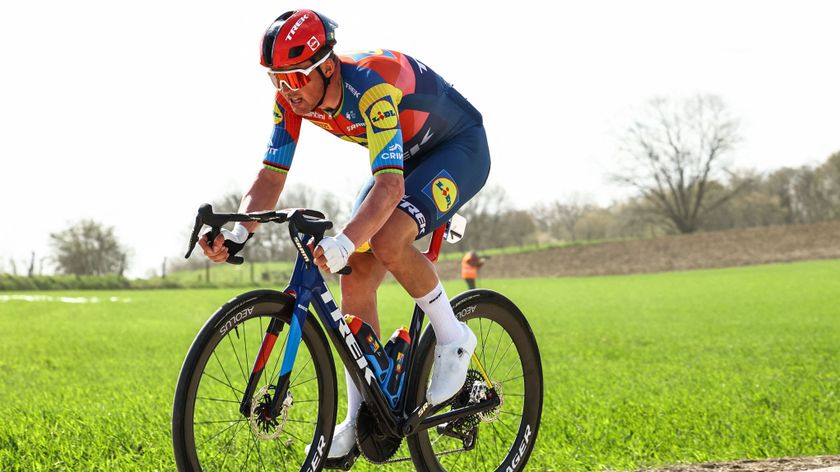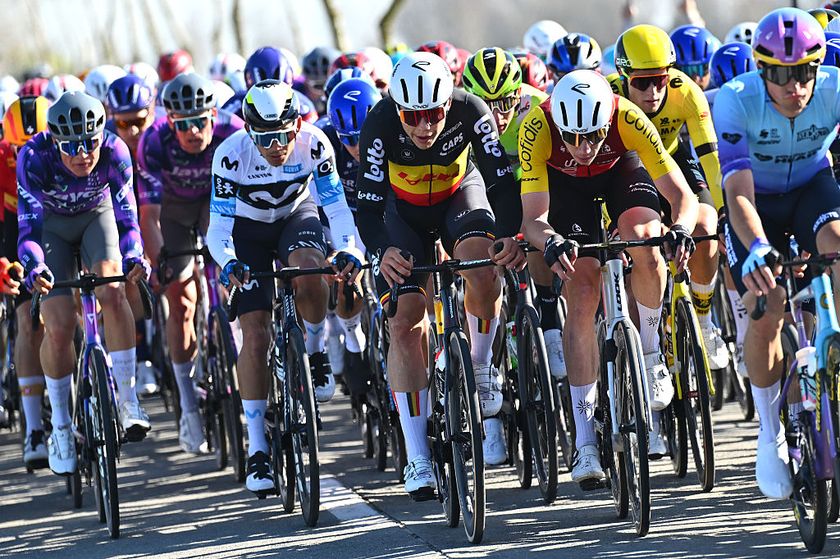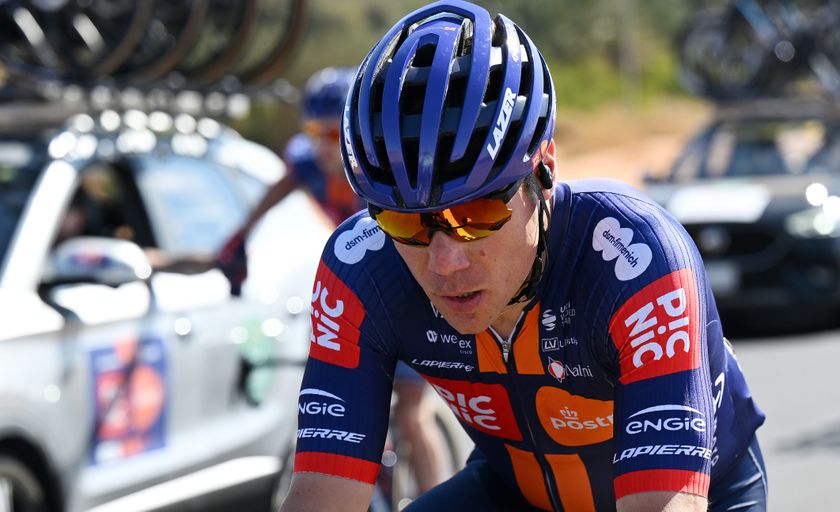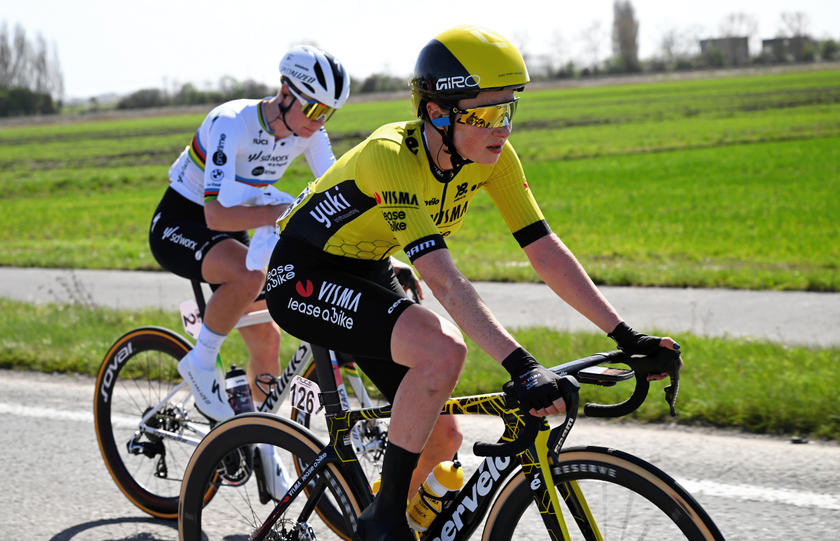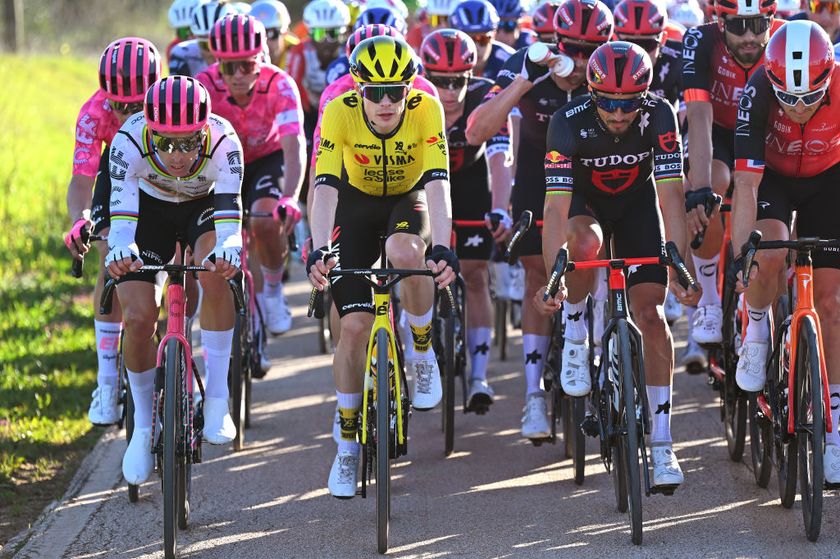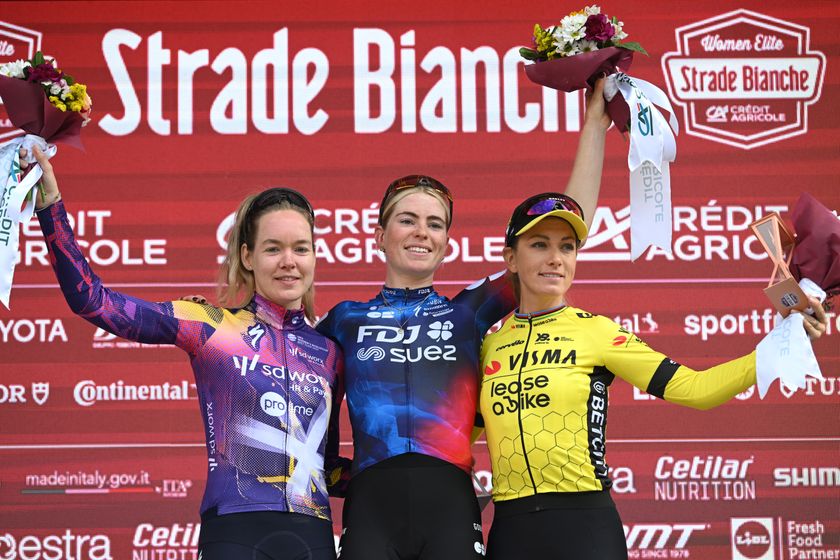Kwiatkowski leads much-needed two-up victory for Ineos Grenadiers at Tour de France
Pole takes first Grand Tour stage win of his 11-year career
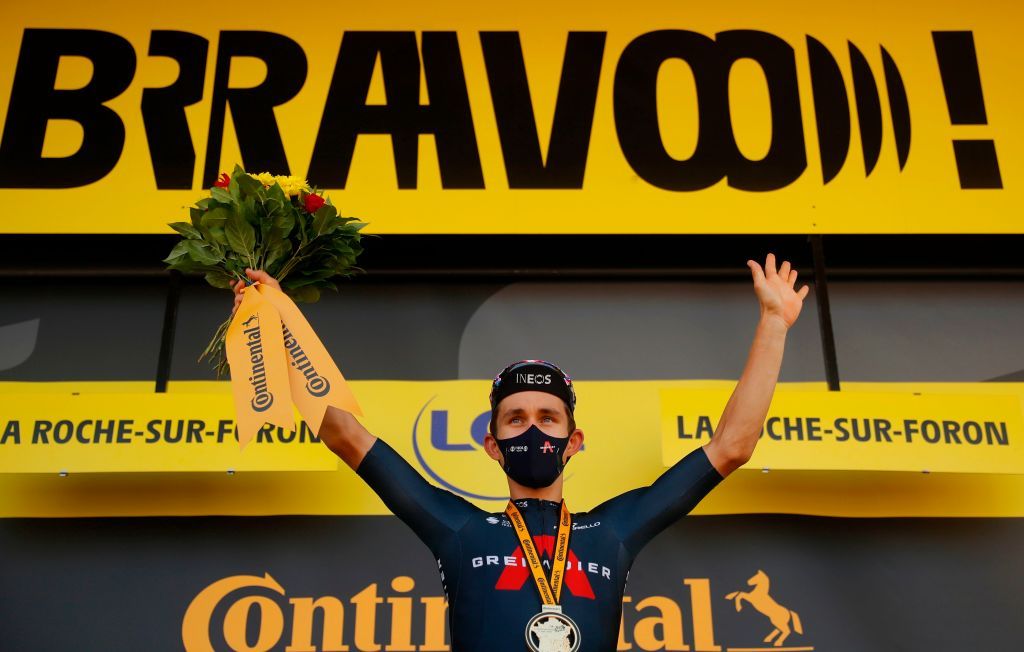
Michal Kwiatkowski and Richard Carapaz provided Ineos Grenadiers with a much-needed morale boost in the Tour de France thanks to their extremely rare 'two-up' stage 18 win for a single team in cycling’s biggest race.
The former world champion and Milan-San Remo winner Kwiatkowski claimed his first Grand Tour stage win ahead of Carapaz, in what was Ineos Grenadiers’ first Tour stage victory since Geraint Thomas in 2018.
Part of a three-dozen strong group that shrank to four over the Col de Saisies, the third last classified climb, it initially looked as Kwiatkowski, doing much of the spadework on the climbs for Carapaz, would finally have to let the Ecuadorian go up the road alone.
But after Marc Hirschi (Team Sunweb) crashed on a descent off the Saisies and Pello Bilbao (Bahrain McLaren) cracked half-way up the ascent of Plateau des Glieres, the two Ineos Grenadiers found themselves out front and with a hefty time margin in hand. Barring disaster, the duo were set to go for the win.
After some discussion close to the line, Carapaz gifted Kwiatkowski the right to take the stage, in a situation where both riders would arguably have made worthy winners.
In a heartfelt, lengthy, press conference, Kwiatkowski confirmed that for Ineos Grenadiers, a victory, particularly of this kind, after leader Egan Bernal had to abandon, was exceptionally welcome. He said that Carapaz had told him he could have the win and that the victory was dedicated to their late director, Nicolas Portal.
“You can’t compare this to any other victories, I’ve never experienced anything like this before,” Kwiatkowski said. “We knew from a long way out that we were going to win it, and even now, I’m still feeling very emotional, I had goosebumps all the way down from the top of the last climb.
Get The Leadout Newsletter
The latest race content, interviews, features, reviews and expert buying guides, direct to your inbox!
“We knew how hard we had worked for it, specially last three days when we changed our objectives,” after Bernal dropped out of the GC battle.
“It’s hard to do that but we tried, yesterday [Wednesday] Richard was so close” - he was caught three kilometres from the line - “and on Tuesday, too. Obviously. he knew he would have the polka-dot jersey and I believe he will win it. I will do everything for him now. I will never forget that.”
Kwiatkowski said his motivation to take the victory, on what was most certainly the last chance to do so in this year’s Tour, was so high that “after two days in the gruppetto, I said to myself that even if there were teammates in the break already, I’d jump across to get in it.” As it was, he found himself in the break in any case.
But when he and Carapaz found themselves ahead, and in a position to take the stage win, it became necessary to discuss how, and who, would go for the victory.
There was some huffing and hawing from French television commentator Laurent Jalabert about how the two should have resolved any dilemma in a sprint rather than through conversation. Jalabert has not been above gifting stages himself, albeit to a rival team rider, German Bert Dietz, in the 1995 Vuelta a España at Sierra Nevada.
But rather than receiving orders from the team boss a la Mapei in the 1996 Paris-Roubaix, or duking it out to the line, Kwiatkowski said that Carapaz had told him if he was able to go for the King of the Mountains lead, then he would not oppose the Pole winning the stage.
“At the end of day, I would love to sit down with him and have a coffee, to discuss that, but when you’re riding at 40-50 kph it’s more chaotic, and for Richard his primary goal was collecting those points for the mountains jersey,” Kwiatkowski said.
Then when Hirschi crashed, his chances increased even more. Richard knew he was going to have it, he said basically I could have the stage, on one condition, that he would have the jersey.”
While the two-up victory has helped Ineos Grenadiers salvage their Tour, it has also indicated that the team’s line-up was solid, despite Egan Bernal’s abandon. For Kwiatkowski, too, his performance and stage wins represents a sort of redemption after his below-expectations showing in the Tour de France of 2019, as well as filling a long-empty gap in his otherwise glittering palmares with a Grand Tour stage win. When asked, though, Kwiatkowski said he could not explain what had happened to the Colombian last weekend.
“I can’t answer that question, I’m not a physio or doctor. I saw he was struggling and fighting big time, hopefully nothing serious and I just hope it’s only fatigue. I hope it’s nothing serious because then his season would be over,” Kwiatkowski argued.
As a former double Strade Bianche winner, he and Carapaz picked their way across the offroad section at the summit of the Glieres, there were echos of his victories in the sterrata of Tuscany three and six years ago. Kwiatkowski did not, he said, appreciate the inclusion of such off-road terrain so close to the end of the Tour, making it, he said, too similar to a lottery.
“If someone had a mechanical at such a late stage of the race, it would be a pity,” he argued. “It’s not the same kind of gravel as Strade Bianche, and it’s not the [right] place to attack or play tactical game.
“Most guys were aiming to go safe, and from my point of view, although it probably looks good on pictures, it would have been a shame if Richard or me had had a problem because of that [section]. At the end of the day we won the race today because we were racing hard.”
Kwiatkowski concluded his press conference by outlining in detail why he had dedicated the win to Nico Portal. As he wryly observed, “a lot of people are judging what we are doing in this Tour and saying we missed Nico in the car, we know that, we miss him but we have to live with that.”
“But whether we are successful or not, we always remember him. It’s hard to describe because we miss him a lot. I know he would have enjoyed today, specially and I think the spirit we’ve had throughout the Tour was inspired by him. So definitely it’s one for him.”
Alasdair Fotheringham has been reporting on cycling since 1991. He has covered every Tour de France since 1992 bar one, as well as numerous other bike races of all shapes and sizes, ranging from the Olympic Games in 2008 to the now sadly defunct Subida a Urkiola hill climb in Spain. As well as working for Cyclingnews, he has also written for The Independent, The Guardian, ProCycling, The Express and Reuters.

